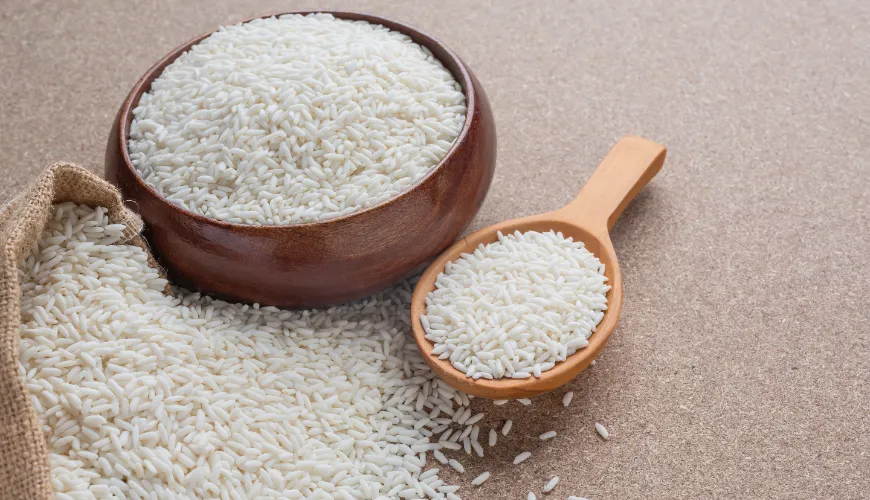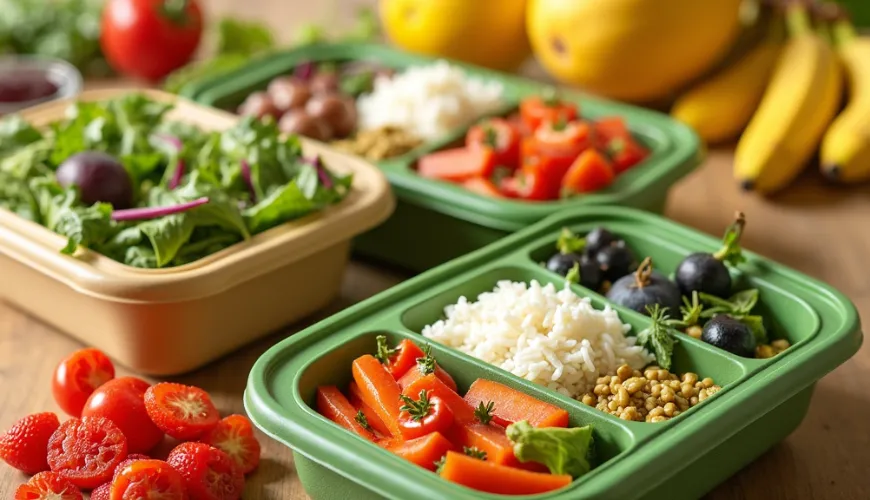
Dietary Meals for the Stomach and How to Relieve Your Digestion

When the Stomach Acts Up - How to Help Yourself with Gentle Nutrition
The stomach is one of those organs we often don't consider until it starts to protest. Whether it's the result of stress, dietary mistakes, stomach ulcers, or recovery after an illness, gentle nutrition can play a key role in how quickly the body recovers. Dietary foods suitable for an irritated stomach aren't just about plain dry rice or boiled potatoes. A modern approach to a gastric diet offers more varied and tasty options without causing discomfort to the stomach.
An irritated stomach can manifest in many ways—from heartburn and nausea to painful cramps or bloating. Triggers often include stress, irregular meals, overeating, or consuming heavy, spicy, or too fatty foods. In such situations, doctors recommend lightening the diet and incorporating so-called stomach-friendly foods. But what does that actually mean in practice?
What to Eat When the Stomach Can't Keep Up
The basic rules of a gastric diet are simple: food should be easily digestible, not too hot or cold, non-greasy, and lightly seasoned. It's also recommended to avoid fried foods, onions, garlic, alcohol, coffee, or carbonated beverages. On the other hand, light soups, boiled vegetables, lean meats, potatoes, rice, oats, or bananas are suitable.
One proven dietary aid for a gastric diet is carrots, which contain pectins that help regenerate the mucous membrane. Similarly, cooked pumpkin or zucchini works well. From fruits, bananas or peeled apples are often recommended as they are gentle and don't irritate the digestive tract. Among grains, rice is a top choice due to its naturally soothing effects.
Even with a diet, you can eat deliciously—and most importantly, with respect for the body. When the body speaks up, it's not necessary to silence it with pain medications for the stomach. Often, a well-composed menu can help—and that's where practical recipes come into play.
Dietary Recipes Suitable for an Irritated Stomach
Imagine the situation: after several days of work stress, you experience stomach pain, nausea, and feelings of heaviness. You don't want to take medication, but you need to eat. What to prepare? There are tried-and-tested recipes for diet foods suitable for the stomach, which are simple to prepare and naturally soothing.
Creamy Carrot Soup Without Cream
Ingredients:
4 large carrots, 1 small potato, 500 ml vegetable broth, a teaspoon of olive oil, a pinch of salt
Instructions:
Chop the carrot and potato into smaller pieces and cook until tender in the broth. Then blend everything smoothly and add a drop of olive oil. Lightly salt. The result is a velvety smooth soup that doesn't burden digestion.
Rice Porridge with Apple
Ingredients:
100 g rice, 300 ml water, 1 apple, a pinch of cinnamon
Instructions:
Cook the rice until soft in water (or in a mixture with plant-based milk without added sugar). Grate the apple finely and mix it into the finished porridge. You can lightly sprinkle with cinnamon. This dish is ideal not only for children but also for adults with sensitive stomachs.
Mashed Potatoes with Stewed Zucchini
Ingredients:
3 potatoes, a piece of zucchini, a teaspoon of butter, a pinch of salt
Instructions:
Boil the potatoes until soft, mash with a small amount of water and a piece of butter. Slice the zucchini into rounds and stew briefly without fat or on a drop of olive oil. Serve together as a light lunch or dinner.
These types of meals aren't just "for the sick." They're also suitable as prevention if you know you're facing a challenging period or just feel your digestion isn't in top form. And importantly—even simple food can be tasty.
Nutrition as Medicine - The Role of Diet in Prevention and Treatment
It's often said that "we are what we eat." For the stomach, this is doubly true. A correctly chosen diet can speed up the healing of the irritated mucous membrane, alleviate pain, and gradually restore normal digestive function. Research shows that people who consistently eat easily digestible foods rich in fiber have a lower risk of developing stomach ulcers and other chronic conditions.
Interestingly, some common ingredients have natural healing potential. For example, rice acts as a natural adsorbent—helping to bind excess acids and unwanted substances in the intestines. Bananas contain substances that protect the gastric mucosa. Ginger has anti-inflammatory effects, but it should be used with caution as its sharp taste may irritate sensitive individuals.
Let's consider the example of Ms. Martina, who experienced burning stomach pain after antibiotic treatment. Instead of more medication, she tried incorporating light meals for a few days on the advice of a nutritionist—boiled rice, root vegetable soups, oat porridge, and bananas. After just three days, she reported a significant improvement. Today, she regularly includes similar meals in her diet, especially during stressful periods.
How to Relieve Yourself When There's No Time to Cook
Life's pace often doesn't allow for hours in the kitchen. If the stomach is acting up and time is short, you can opt for ready-made gentle options that don't contain preservatives, added sugar, or artificial flavors. Ferwer.cz, for example, offers a selection of ecological foods suitable even for a diet—from organic oat porridges to vegetable broths or dried mixes for quick preparation.
It's important to watch the ingredients—less is often more. The shorter the list of ingredients, the higher the likelihood the body won't be unnecessarily burdened. Whether it's an instant soup or a ready-made porridge, they should contain natural ingredients, without added additives.
An interesting tip is homemade broths—they can be prepared in advance, portioned, and frozen. When the stomach is protesting, simply thaw and add, for example, cooked buckwheat or millet.
Anyone who has ever experienced an irritated stomach knows how unpleasant it can be. Fortunately, we have a simple and effective tool at our disposal: food as medicine. It only takes listening to the body, choosing the right ingredients, and giving the stomach time to heal. Because sometimes, just a little—a warm bowl of gentle soup—is all it takes for the body to reward us with surprising vitality.

